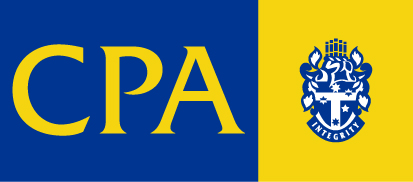If your answer is yes, then consider changing to a corporate trustee by the end of this financial year.
WHY CHANGE TO A CORPORATE TRUSTEE?
There are several key reasons why a corporate trustee is a more efficient, cost-effective and administratively easier option for your family’s SMSF and estate plan:
- DEATH/INCAPACITY OF AN INDIVIDUAL TRUSTEE
When an individual trustee becomes incapacitated or dies, the trustees – and therefore title of the assets in the Fund – will need to be updated.
Upon the death or incapacity of a member/individual trustee, typically the deceased/incapacitated trustee will be removed and replaced with their ‘legal personal representative’ (LPR).
An example of a legal personal representative is an attorney appointed a financial enduring power of attorney or executor under a will.
Further, when a member/individual trustee dies and their death benefit commences to be paid, the trustees will need to change again (as the LPR cannot continue to act in place of the deceased member).
Every change of trustee will need to be reflected on all assets of the fund (including real property), causing delay and expense to the SMSF and family. Let us look at an example:
Scenario 1
Bob and Wendy are individual trustees of their self-managed superannuation fund – Bob and Wendy Builder Superannuation Fund. They are the only members of the Fund.
Bob dies and is removed as an individual trustee under the trust deed for the fund. Because Wendy is Bob’s executor under his will, she can continue to act as trustee in her own capacity as a member, and as trustee in place of Bob.
Because they are individual trustees, they will need to update the title of the investments of the Fund to remove Bob as a trustee. Wendy contacts her fund administrator and McInnes Wilson Lawyers, who work together to prepare documents to remove Bob as a trustee of the investments of the Fund, confirm Wendy’s continuing appointment as trustee in place of Bob and update the investments in the Fund.
Four months after Bob’s passing, the Fund commences paying Bob’s member benefit to Wendy as a pension. The clock starts ticking and Wendy has six months to either appoint a second person as individual trustee of the Fund with Wendy, or a corporate trustee. Wendy’s son, Benjamin, has agreed to act as trustee of the Fund with Wendy. Wendy contacts her fund administrator and McInnes Wilson Lawyers, who work together to prepare documents to appoint Benjamin as a trustee of the Fund and update investments of the Fund to reflect the appointment of the new trustee.
Costs to engage McInnes Wilson Lawyers to prepare the above-mentioned documents – approx. $3,000.00 – $4,000.00 exc GST.
- DEATH/INCAPACITY OF A DIRECTOR OF A CORPORATE TRUSTEE
Where there is only one member remaining in the fund, that member will not have to find a second person to act as co-director of the trustee of the fund with the remaining member. Let us look at an example:
Scenario 2
Following from the facts in Scenario 2 except that Bob and Wendy have a corporate trustee for their SMSF – Bob and Wendy Super Pty Ltd. Bob and Wendy are directors of that company.
Bob dies and is removed as a director of the corporate trustee under the constitution for the company. Because Wendy is Bob’s executor under his will, she can continue to act as director in her own capacity as a member and as director in place of Bob. No further appointments (e.g. Benjamin) are necessary, even when Bob’s death benefit commences to be paid to Wendy as a pension. No changes to the titles of the assets of the Fund are required; all assets remain in the name of Bob and Wendy Super Pty Ltd.
Further, where the corporate trustee is a sole director/sole shareholder company, we may utilise provisions under the Corporation Act which allow for simpler administration.
- REDUCED ASIC FEES
The expense of registering and maintaining a company is the most common deterrent to SMSFs using a corporate trustee.
However, a company registered as a ‘special purpose company’ (meaning a company only acts as trustee of a self-managed superannuation fund) will receive the benefit of reduced ASIC annual return fees.
Company registration fee with McInnes Wilson Lawyers – approximately $900 including ASIC registration fee.
ASIC annual return fee for special purpose company – $55 for 2021 year.
NEXT STEPS – APPROACHING A LAWYER
Changing to a corporate trustee for your SMSF does not have to be complicated. Simply contact Victoria Mercer or Neal Dallas and provide us with:
(a) Details of your new corporate trustee
Your accountant may be able to assist with registering a new company for you. If not, we will provide you with our company register form and attend to this for you; and
(b) All trust deeds for the Fund
This includes the establishment deed, any amendments to the establishment deed (often referred to as a deed of variation or amendment) and any previous changes of trustee (deeds of appointment and removal of trustee).
Upon receipt of the above-mentioned documents, we will provide you with our fee estimate for preparing the documentation the change the trustee of the Fund.
IMPORTANT NOTE
The appointment of the new corporate trustee as trustee of the Fund will need to be recorded on all the assets (including share register, bank accounts etc.) of the Fund. You should consult your fund administrator about this process before proceeding.
We look forward to hearing from you.
“Liability limited by a scheme approved under Professional Standards Legislation”





